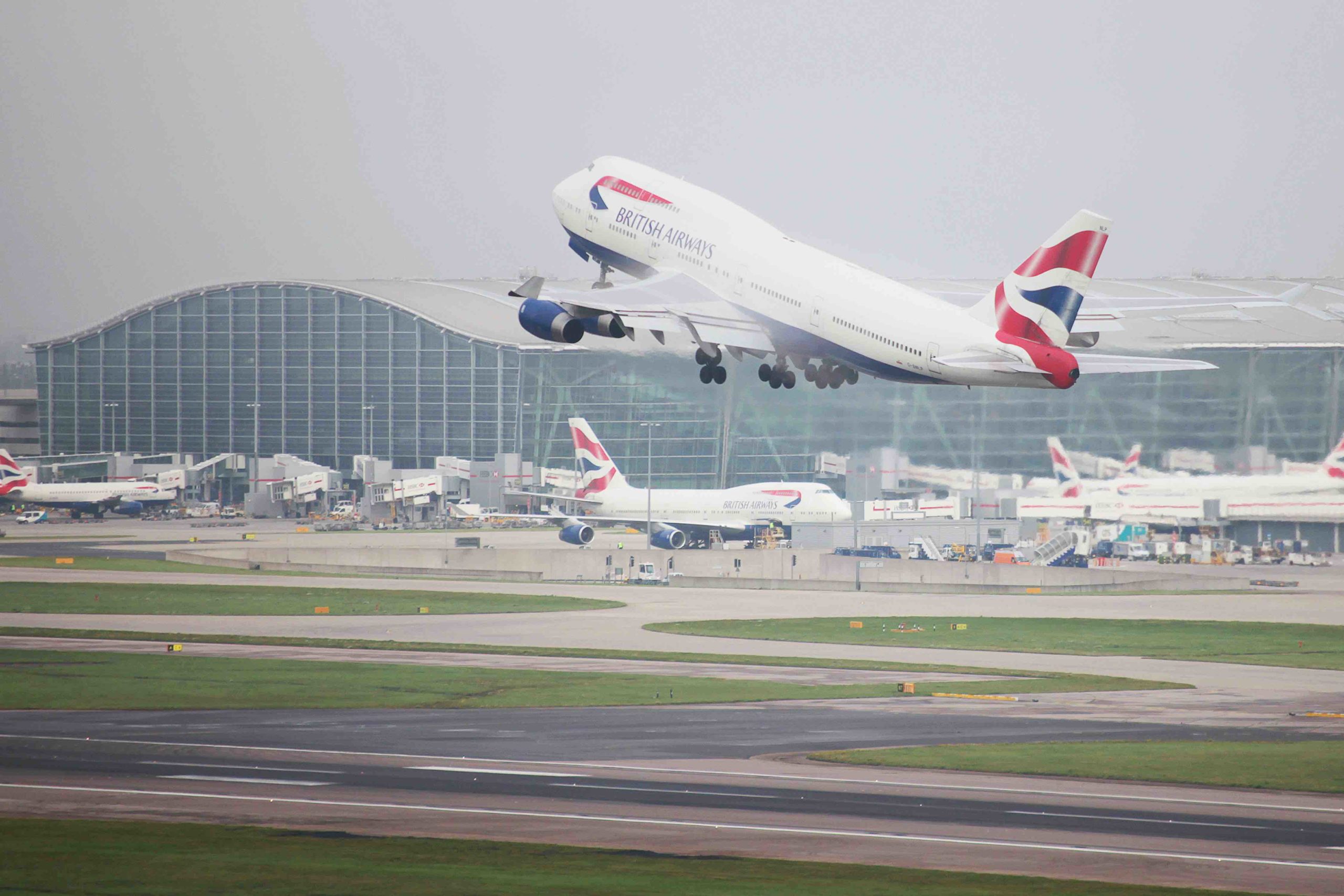The United Kingdom announced a new entry scheme that will add a fee and paperwork to visitors, but it’s not the cost that will hurt British tourism.
If you are considering booking travel or signing up for a new credit card please click here. Both support LiveAndLetsFly.com.
If you haven’t followed us on Facebook or Instagram, add us today.

UK Introduces New Visitor Entry Scheme
This week the United Kingdom announced a new “scheme” (different connotation in the UK than in the US) from Customs and Border Protection that will add paperwork and cost to visitors. Prior to travel, an application will take 48 to 72 hours to process and a fee must be accepted and approved. The cost of the fee has not been disclosed but is said to be “small” and will cover the cost to help “digitize the border.”
Some of the affected countries are as follows:
Non-visa nationals will need to apply for the new program. The confirmed list of countries will be announced at a later time but it’s expected to include:
The European Union.
Other European countries like Norway, Iceland, Andorra, Liechtenstein, Switzerland, Vatican City and Monaco.
Visa-exempt nations like Australia, Canada and the United States. – USA Today
This appears to include every country, but by intentionally outlining countries where citizens might not have applied for entry permissions before, it seems to underline that those countries are included.
The government has not quantified the fee that applies to visitors but not to British citizens. One would suspect it would be at or below the Great British Pound equivalent to a similar US fee which is currently $21.
Comparing To The US ESTA
Many are comparing this new process to the US ESTA (Electronic System for Travel Authorization.) Similarly, a group of nations is eligible for an ESTA application. Travel to the United States has varying degrees of documentation and permissions depending on the country of departure. Applying for an ESTA should be done as soon as possible after purchasing transportation to the United States.
The Department of Homeland Security lists on its official website all of the ESTA-eligible countries:
You must be a citizen or national of the following countries to be eligible to travel to the United States under the VWP.
- Andorra
- Australia
- Austria
- Belgium
- Brunei
- Chile
- Croatia
- Czech Republic
- Denmark
- Estonia
- Finland
- France
- Germany
- Greece
- Hungary
- Iceland
- Ireland
- Italy
- Japan
- Latvia
- Liechtenstein
- Lithuania
- Luxembourg
- Malta
- Monaco
- Netherlands
- New Zealand
- Norway
- Poland
- Portugal
- San Marino
- Singapore
- Slovakia
- Slovenia
- South Korea
- Spain
- Sweden
- Switzerland
- Taiwan
- United Kingdom
The Visa Waiver Program (VWP) oversees the entry process for US visitors though there have been changes to eligibility in that program restricting those who have traveled to, been present in, or are also nationals of Iran, Iraq, Libya, Somalia, Sudan, Syria, and North Korea.
The ESTA program only permits entry for 90 days while the UK’s system will allow entry for two years. It’s believed the program will allow for multiple entries over that period. ESTA’s application fee is $21 (whether or approved or denied) but it’s worth noting that the UK has an Air Passenger Duty (APD) payable upon departure from the United Kingdom that varies based on distance and class of service. APD ranges from £18-185 per passenger.
The UK’s new scheme will make it easier for some nationalities that wouldn’t be included in ESTA, but it makes it harder for visitors from countries that didn’t have to register for their visit before.

Why The Paperwork, Not Cost Is Problematic
Assuming for a moment that the cost is at or below the US ESTA fee of $21, it’s not really an amount that will keep travelers from visiting the UK. The APD has changed some traveler behavior, my family tends to arrive in the UK but depart from other airports especially on award tickets to reduce our APD. When coupled with fuel surcharges levied by British Airways and Virgin Atlantic, my family would instead add a European city to our itinerary anyway. Maybe it’s a meaningless gesture, but so is a departure fee.
While the cost will not become a reason that they will not choose to travel to England (the APD hasn’t reduced British tourism) it will act as a resort fee in a way that the APD has not. Because flight search engines won’t know whether the traveler has an approved exemption (for example, British passport holders) or is already approved, they won’t add the cost of the application to the ticket price, leaving that surprise for after the purchase has closed.
The paperwork will deter eligible travelers and exclude some too. Mistakes in applications, processing, and security checks will likely exclude those who would otherwise visit unabated. The EU introduced its own requirement in 2016, the ETIAS, priced at €7 valid for three years; set to start in late 2023. A trip that required no paperwork or additional time or money from New York to London to Paris will now add two applications, some cost, and many opportunities for error and failure.
Attractions like the Eiffel Tower, Buckingham Palace, and the Colosseum might be unmissable for some, but others might opt for destinations that don’t pose the same headaches, especially if the program’s rollout is not smooth. The UK also missed an opportunity to steal some travelers from either the US or the EU who simply don’t want to deal with the application process.

Conclusion
Knowing the cost of the UK’s new entry scheme would be helpful, and as long as the fee isn’t overly expensive, tourism won’t likely drop as a result of the price. However, adding additional hassle, especially if an application is unsuccessful, will negatively impact tourism. As a seller of travel, many of our customers would easily absorb the additional cost as part of doing business, and it’s a fair response to the US’s approach to tourism and applications even for visa-free travelers. However, adding complication, time, and additional hassle will be an impediment to some. The affluent have the most options for travel and the least patience for inconveniences, and that’s what will drive travelers to look elsewhere.
What do you think? Will this new process have a material effect on UK visitors? Is there a price point at which cost will drive travelers to other destinations?




So you mean you want me to pay MORE to have to wait in that crappy 2 hour line in Heathrow – no thanks. There’s a reason I make it a point to avoid any stop or transit through this shlthole country.
You missed Cuba from the VWP list thanks to DT.
That has really screwed up a lot of people wanting to transit the US to Havanna.
So when does this “resort fee” due to start?
Since the EU will have an entrance fee, why not the UK which left the EU several yrs ago. As long as the paper work can be done on-line, most air travelers will shrug at the impediment.
The real carping will be heard once applied to EuroStar service. Its a back door that both the EU & UK could see as an additional revenue enhancement scheme (British vernacular). I’ve used it, and it’s a hell of a lot easier than airport service.
Much ado about nothing (to coin a phrase). The US has had this for years and the EU will soon as well once they get their stuff together. The digitisation of entries is an obvious development to secure borders now that computer power is so developed.
Even with these ‘visas’ the transit across borders is still much easier than as recently as a few decades ago.
Like Resort Fees, ETSA’s are an impediment to travel. People who forget or make a mistake will suffer greatly and for what? A few bucks or to pre-screen travelers so they aren’t turned away at the border by a flag in the computer system?
Actually, the computer infrastructure is already in place to help pre-screen passengers: When international tickets are booked either on rail or plane, the passenger’s information is put into the reservation system. The airlines/rail can forward that information to the governments who can then reach out to the airline to advise the passenger if there are issues with them entering in advance.
It’s not nearly as much as an impediment as those applied by the US and the EU, because the UK permits US and EU nationals to use the e-gates where the US and the EU (generally) do not permit UK citizens to use the e-gates. I know so many people who won’t return to the USA after having waited for 2+ hours for entry after a transatlantic flight. And these are the sort of people who don’t fly at the back of the plane.
I agree entirely, it’s not the cost of these programs but just the (admittedly minor) hassle of having to do them in advance.
So many countries are now adding an extra step that has to be done in advance, making travel more inconvenient. Alongside the UK and the EU, South Korea is another recent example.
Why does it have to be this way? With biometric passports can’t everything be checked instantaneously at e-gates at immigration? If some advance information is needed, can’t it be gathered from a scan of the passprot at check-in? Why do people need to type in names and passport numbers etc.? Why is travel becoming more inconvenient?
I think that this may ultimately be a positive development, as the pre-authorisation clearly makes it easier to get the biometric passports of visitors from more countries scanned at e-gates, thereby minimising the queues and general hassle associated with manual passport control. I am more than happy to pay $15 or whatever for an e-visa if it means that I can avoid having to queue for 1,5 hour straight after having had a poor night’s sleep during a long-haul flight crossing multiple time zones (and possibly having forgotten to grab a water bottle upon leaving the plane).
Gotta agree with NB on this one. And I’ve got GE on a non us passport but looking at the cue of people in the other categories upon arrival at a us airport, listening to unnecessary questions and conversation from officers to travel weary passengers as the cue is held up ever longer has made me think multiple times, this is a terrible and inefficient welcome to the us for too many people. Wtf doesn’t the us have e gates yesterday? Travel blogger types typically bristle at all barriers to entry but if you’re gonna do that, you should start with lack of egates in the us.
Meh…I just don’t see an e-visa type thing with a nominal fee having a material impact on a decision to visit a country or not. Are they irritating, yes, but if the UK e-visa will be good for multiple entries over a two-year period, my guess is most people will just get it at the same time they buy their tickets.
So Gone are the days of doing a last min weekend trip to the UK? Great sometimes I’ve booked the day of to the UK, and how long is the visa good for? Just that trip?
Always interesting to hear a US citizen whining and whinging about entry requirements of other countries.
I stay away from the US because I don’t like what happens there so please treat the UK in the same way if you don’t like it here, we won’t miss you.
Oh, and do remember that US citizens entering the UK can be cleared through egates in minutes, a UK citizen is expected to queue for hours to enter the US and be then dealt with by some of the most rude and aggressive border staff in the world.